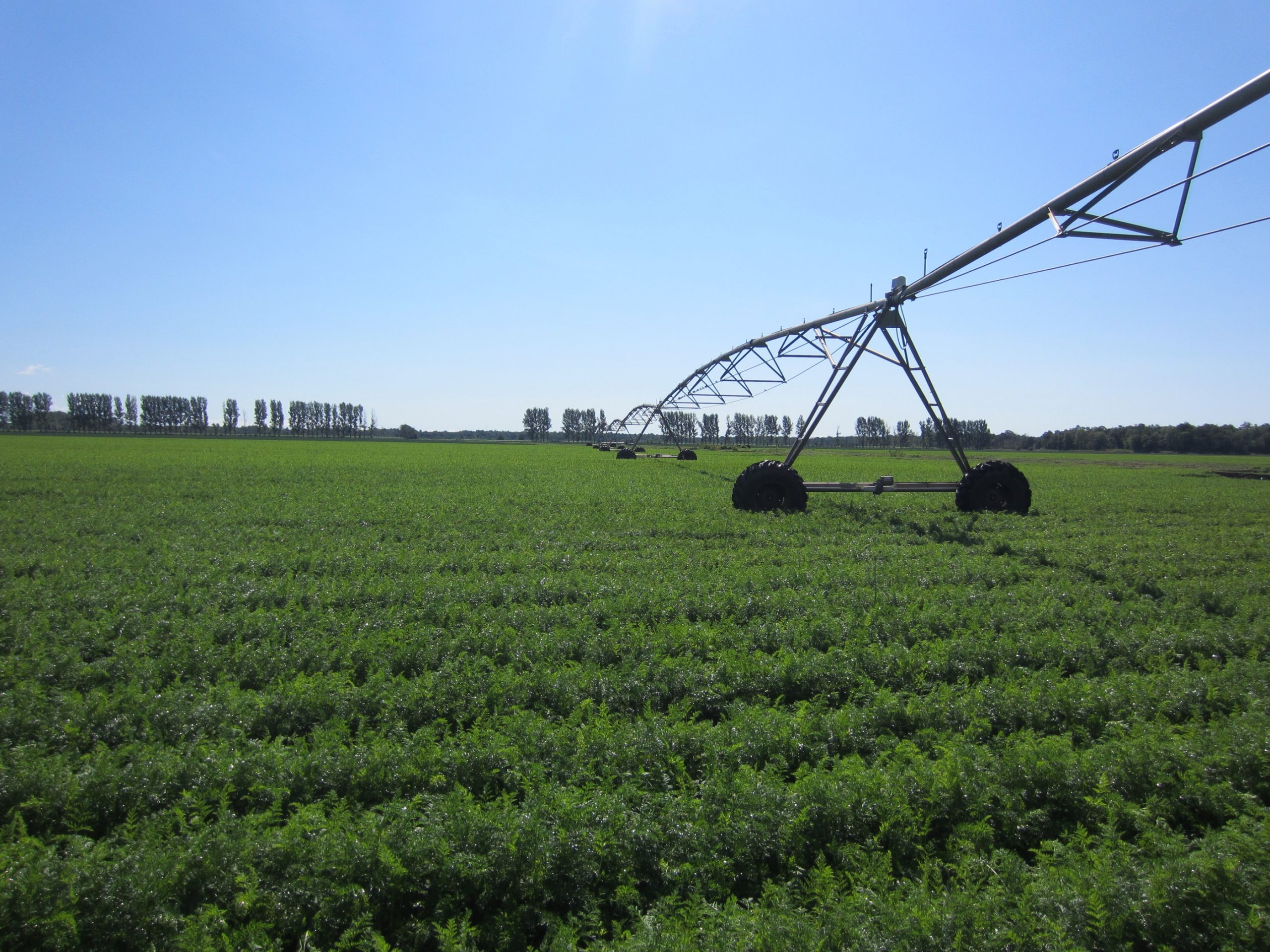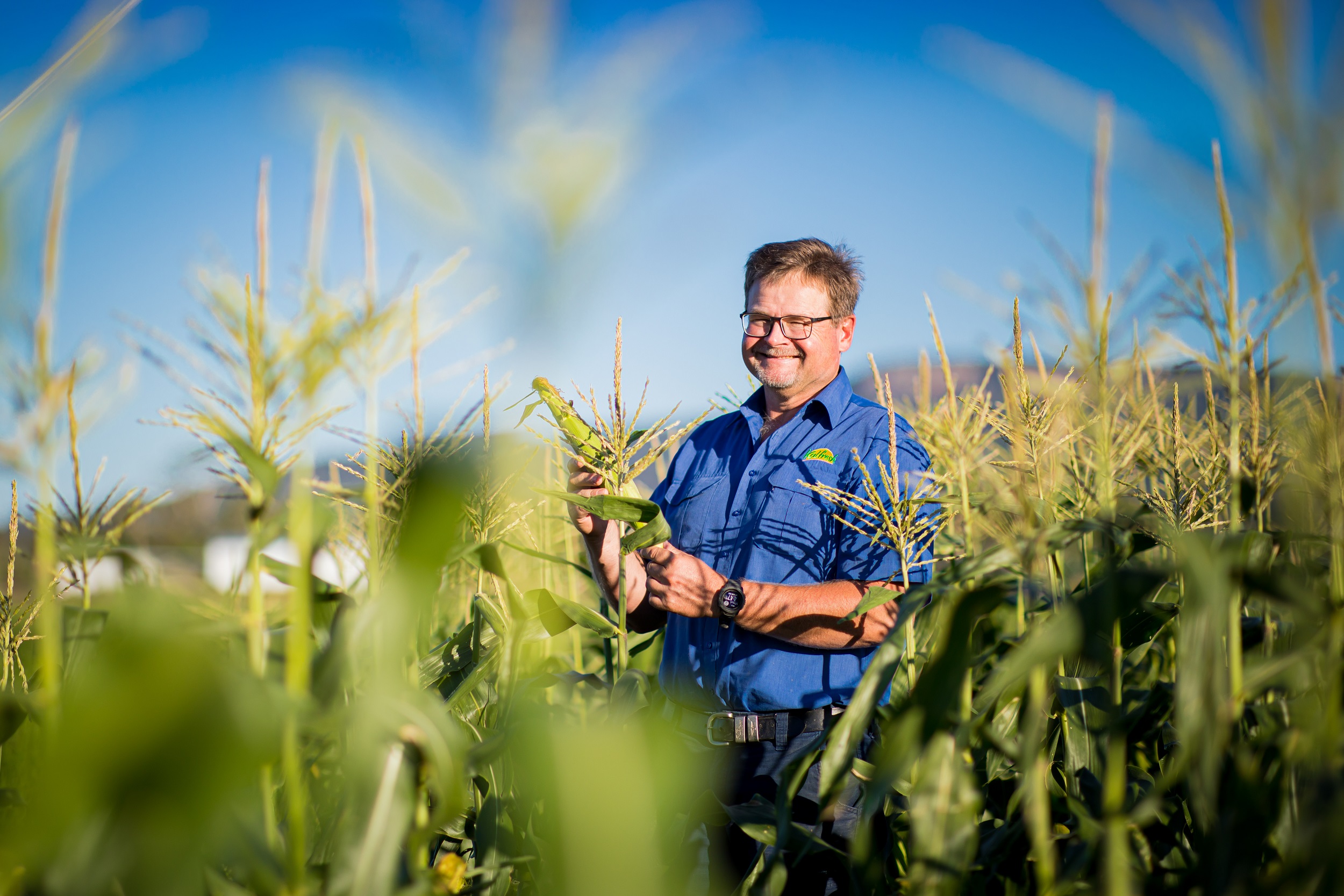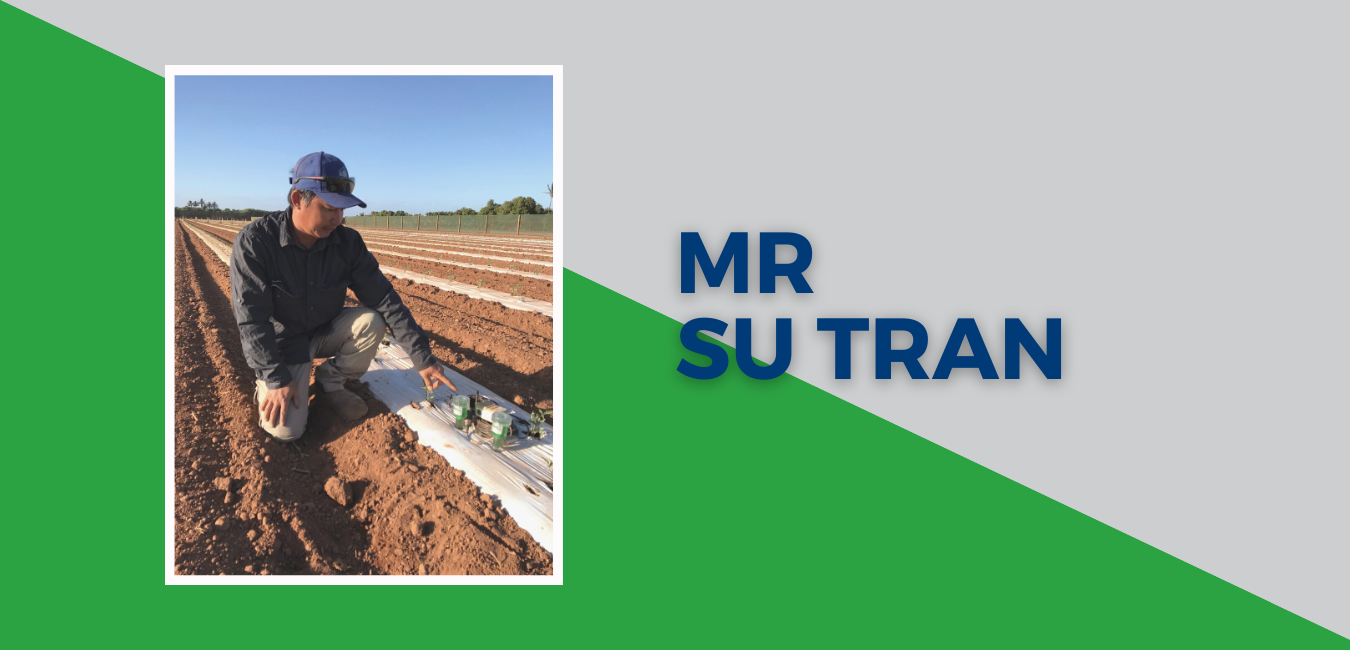
Q&A with Rob Arvier
20 May 2021
In conversation with… Robert Hinrichsen
21 May 2021Over the last 12 months, Australia has suffered and survived fire, drought, floods and the COVID-19 pandemic. From coast to coast, the agriculture and horticulture sectors have really struggled, but through sheer strength and tenacity we’ve continued to get up, put on our boots and get our hands dirty. Because of this, the VegNET – Western Australia team wanted to highlight the true essence of ‘The Little Aussie Battler’ kept alive by ALL growers. Below is a Q&A with one of the team’s Carnarvon growers, Mr Su Tran.
Can you please give me a brief overview of your business and the produce that you grow?
Tran Quoc Su, known to Vietnamese grower community in Carnarvon as Mr Su, runs a small scale but impressive tomato farm in Carnarvon, Western Australia. His enthusiasm for learning, efficiency on farm and ability in overcoming the language barrier are just some of his notable traits. Mr Su grew up in a remote province in far south of Vietnam, just off the U minh Melaleuca forest. The land is rich with culture, but widespread poverty and illiteracy means college isn’t an option for most.
In 2005, when he was just 26, Mr Su moved to Australia and settled in Carnarvon. He initially took a job as a seasonal worker on a tomato farm making minimum wage, with his sights set on developing his skills enough to own his own farm. By 2011, he had progressed to share farming and leased a 14-acre farm. In 2015, he bought the adjacent 15-acre property and is now running both growing tomatoes, melons and a few fruit trees like avocado, mango and jackfruit.
What do you enjoy most about being involved in the vegetable industry?
Initially, Mr Su believed with his very basic level of education and limited English, working in the field as he had done with his family in his home country, was his only option. Today he acknowledges that while running his own vegetable growing business takes hard work and dedication, it also offers him great satisfaction and fulfilment; he enjoys being “the boss of himself”. He meets every challenge with hard work and welcomes the opportunity to increase his knowledge when faced with problems. Through continuous learning, his hard work is consistently rewarded with success at the end of the season.
“I am happy that I make decision for what I do in my own business. Although things do not always work out the way you wish, but I am still happy because I could learn why thing has gone wrong and I make decision for the improvement of my own business.”
By being “the boss”, Mr Su is also able to enjoy a positive work-life balance. He has the flexibility to schedule his time spent on farm, with his family and on his own personal interests like fishing and catching mud crabs. Whilst Mr Su and his wife appreciate their life in Australia, they maintain strong links to their families and life in Vietnam. With time spent among friends, most of whom are growers themselves, it not only strengthens community relationships but allows for the much-needed kinship he grew up with in his home country.
“When you work for the others, you must follow the contracted conditions that you hardly make sure to be available when your family need you.”
What challenges do you face as a vegetable grower?
The language barrier is a LOTE grower’s biggest hurdle. Finding ways to improve his skills and abilities, with limited literacy, to maintain sustainable business practices under the constantly changing environment is difficult. Providing a strong extension service network is vital to growers, especially the extension service that speak “grower language”, like the one provided by VegNET WA.
“Earlier, I rarely attend a meeting because I can’t understand English while language assistance is not always provided. Now things have changed – a Vietnamese development officer working in VegNET WA helps to do translation in meetings and convert document to our language, which is very helpful.”
Maintaining financial fitness is also a major concern, which puts Mr Su under constant pressure. Much of the business investments come from bank loans and while the fixed costs, such as the mortgage, rent and operational expenses, must be budgeted, while income returns are dependent on volatile market prices.
“The investment money lays out in the field in forms of growing crops. They are threatened by several known and unknown problems such as pests and diseases, bad weather and so on. Every mistaken crop care practices or business management may lead to disaster.”
A strategy to deal with these challenges is cultivating strong relationships for grower-to-grower information transfer. Genuine engagement with service providers like input suppliers, government agencies and the VegNET WA RDOs, to keep informed of industry innovation, standards and R&D is also essential. Like many growers, learning through on farm trial and error is Mr Su’s preferred learning style.
What new innovations, research and/or practices has your business implemented recently?
In 2017, Mr Su implemented a digital soil moisture monitoring device for a one-year trial. During this trial, Mr Su learned the benefits of soil moisture monitoring for irrigation decision making. He has since invested in two more devices for additional plots on his tomato farm. Mr Su reveals that his adoption of this innovation has helped him to understand the sub-surface soil moisture levels, which assists him in his irrigation scheduling. He has also recently started using an automatic and internet linked irrigation controller, saving him a lot of time and hard work. It also allows him to monitor irrigation operations remotely, even while visiting family in Vietnam.
In terms of research and development, what do you think is vital to the vegetable industry right now?
R&D into disease resistant varieties plays a large part his decision-making process. Developing new varieties that are adapted to the local growing conditions and have better pests and diseases resistance is essential. For the last two years, this has greatly informed which seedlings he chooses.
“Using resistant varieties give significant benefits in terms of better crop growth, saving time and money for disease control and obtaining better produce quality.”
So, what does the future hold for Mr Su?
He admits mounting pressure, such as rising input costs, labour and imbalanced return to growers, is creating a tougher industry landscape. However, it’s pushing him to innovate for a better work-life balance; like converting part of his property to a fruit orchard. Although Mr Su is unsure whether his children will continue in the vegetable industry, he is certain that through his continued work in the industry, they will be able to pursue the education and profession they desire.
Find out more
For further details about VegNET – Western Australia activities, please contact Regional Development Officers Sam Grubiša at sam.grubisa@vegetableswa.com.au or Truyen Vo at truyen.vo@vegetableswa.com.au.
VegNET – Western Australia is a strategic levy investment under the Hort Innovation Vegetable Fund.
This project has been funded by Hort Innovation using the vegetable research and development levy and contributions from the Australian Government.
Project Number: VG19016

